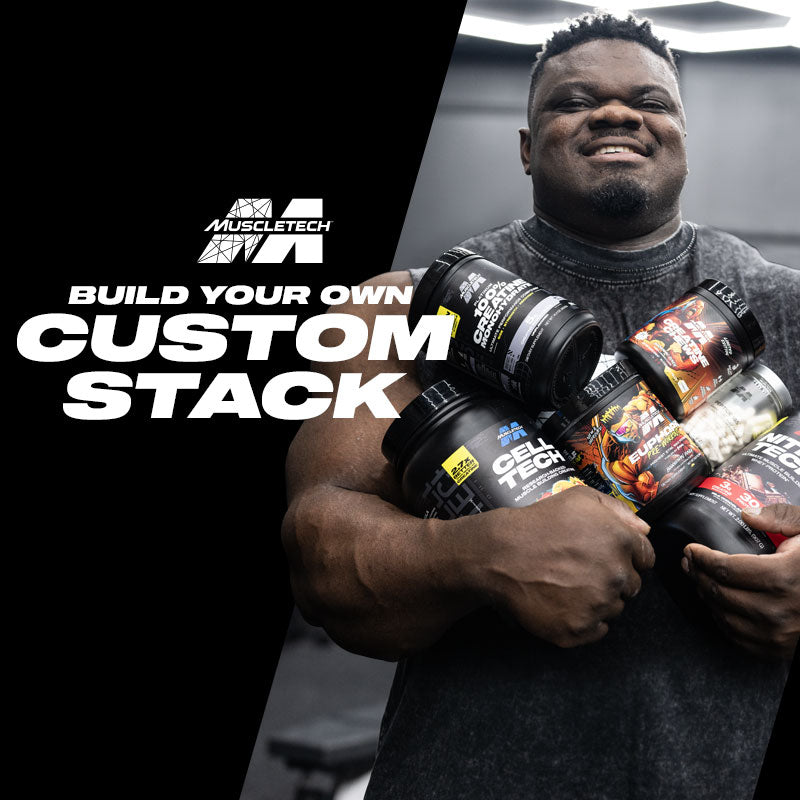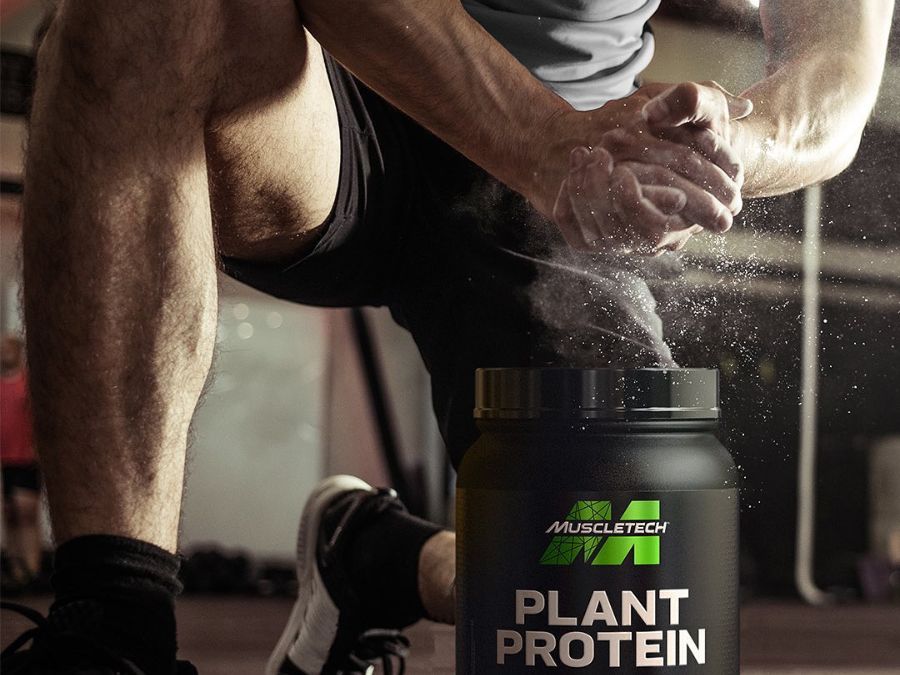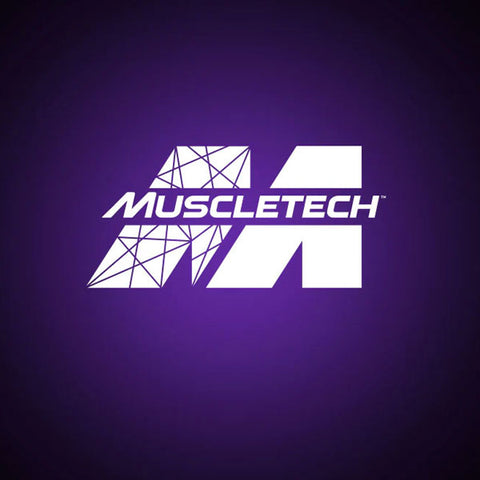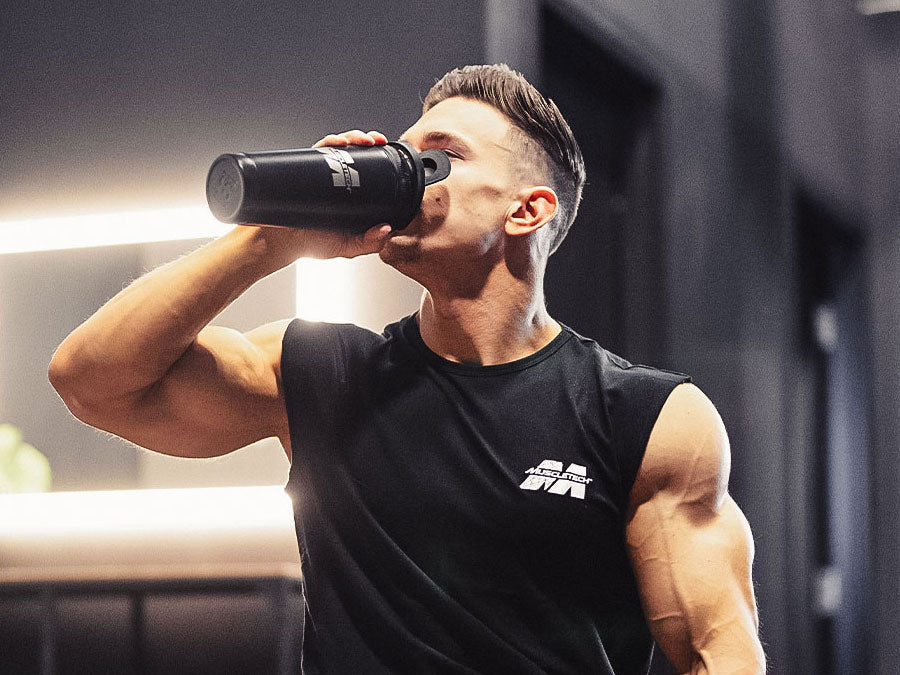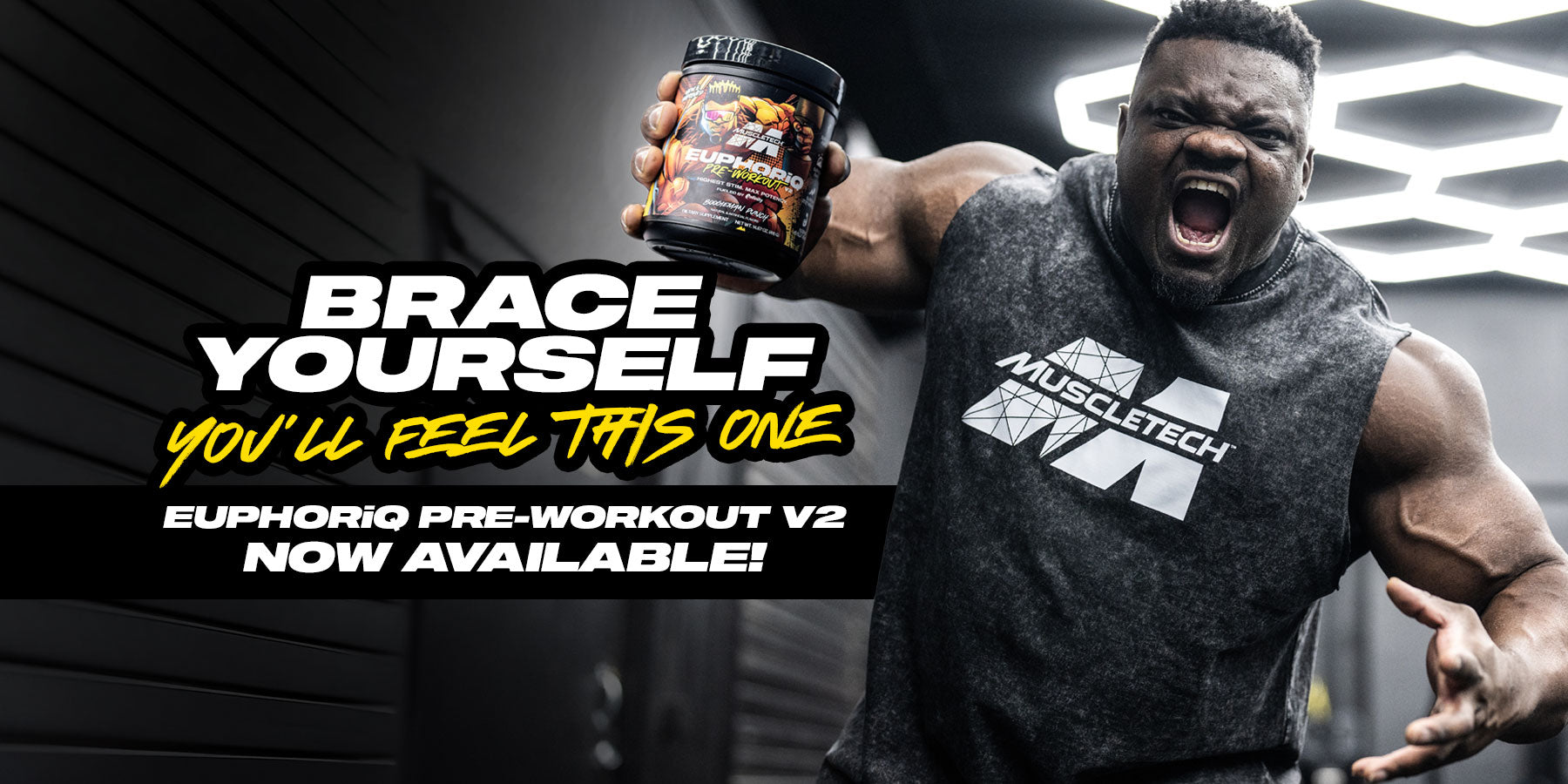Protein is always a hot topic among athletes, however most of the conversations around it center solely on how much to take and when. Protein, regardless of its source, can provide building blocks for the growth, repair, and general function of muscle and connective tissue.
However, if you’re looking to get the best muscle building results, when you’re choosing protein, the source becomes increasingly important – especially when it comes to protein supplements.
While food protein sources are necessary staple, for optimal results protein supplementation is a great way to add extra protein conveniently to your diet.
What’s more, they work by stimulating muscle protein synthesis, especially when taken post-workout – this can support the maintenance of lean muscle mass and even speed up muscle growth and recovery. With that in mind – not all proteins are equally up to this task.
It’s important to read labels very carefully and ensure you’re choosing the protein source that best suits your needs.
Shop for Protein Powder with Creatine
Creating a Rating System
1 Star – Best used as a supplement alongside your protein
2 Stars – Not great for a primary protein source
3 Stars – A solid protein source, but has shortcomings the prevent it from being ideal
4 Stars – A great protein source
5 Stars – The best protein(s) for athletes
1. Collagen (1-Star)
The most abundant protein in the human body – so it’s good for size, strength and recovery – right? Well, yes and no. Collagen products have mostly been marketed for improving skin condition, bone strength, and reducing joint pain.
They also contain high levels of glycine, proline, hydroxyproline, and lysine which helps with the regeneration of cartilage. So for athletes, collagen is beneficial as a supplement to keep connective tissue, tendons and ligaments performing at their best.
But from a muscle building perspective, it lacks sufficient levels of leucine and is completely lacking in the essential amino acid L-tryptophan. While it’s better than no protein at all, almost every other protein supplement available is superior for muscle growth.
Also Read: Best Creatine for Women
2. Soy (2-Stars)
Soy protein supplements had their heyday in the late ‘90s. And while soy is a key protein in many cheaper protein bars and protein snacks, as a supplement most serious athletes have moved on from it.
While it is a complete source of protein, Soy has a lower biological value (BV) score of 74. In general, proteins with higher Biological Value are more easily assimilated and facilitate nitrogen retention, anabolism and anti-catabolism than low BV proteins.
SHOP & SAVE ON PROTEIN
Soy is light on the sulfur-containing amino acid methionine too, which is a big deal because sulfur-containing amino acids are important for protein synthesis, muscle growth and proper immune system function.
Finally, while soy is considered a complete protein, it contains lower amounts of BCAAs than dairy milk proteins. Maximizing BCAA intake, especially L-leucine is key to stimulating optimal protein synthesis. Because it’s lower in BCAA soy is not the best choice for athletes.
3. Beef (3-Stars)
Beef protein powders are relatively new to the market. When they launched, athletes imagined their beef protein powders coming from the finest cuts of delicious steak.
In reality, these “Hydrolyzed Beef Protein Isolate” proteins touted by many brands to be high-quality protein turned out to be made mostly of the skin, bone, tendons, and other connective tissues of muscle.
Instead of drinking processed, powdered cow meat, athletes who made the wrong choice on where to buy their beef protein were drinking powdered cow ears and unmentionables.
From a muscle building standpoint, like collagen, beef protein contains a higher concentration of glycine, proline, hydroxyproline, and arginine, however it’s BCAA content and EAA content is somewhat low in comparison to milk based proteins – in particular leucine which is one of the key drivers of protein synthesis. On the Biological Value scale, Beef has a solid score of 80.
Overall Beef protein is an ok choice – with the caveat that not all beef protein powders are made the same. High-quality beef protein powders from top brands have amino acid profiles that are similar to real beef – with low quality powders from unscrupulous brands being similar to collagen. That’s a big difference in quality that’s often too risky to determine when you’re looking where to spend your hard-earned dollars.
Also Read: How to Train Like an Athlete?
4. Pea (4-Stars)
From a plant protein perspective, pea protein considered one of the most complete plant-based proteins supplements available and that’s pretty respectable. In fact, pea protein is about 30% essential amino acids, which isn’t bad considering casein protein has 34%.[1]
Like many plant proteins, Pea isn’t perfect – in particular is because it lacks methionine (which is also a key weakness with soy). However, Pea still has solid amounts of essential amino acids, specifically, leucine, isoleucine, valine, and – making it the one of the best, if not the best non-animal based choice for protein supplements.
Also Read: How to Prepare for a Marathon?
5. Egg (4-Stars)
Long before whey protein came on the market in the early 90’s egg protein was the pinnacle of protein for bodybuilders and other athletes. Egg protein had the highest biological value and is a complete protein with all 9 essential amino acids and at the time was the protein source with the most leucine.
Eggs still are one of the cheapest and most nutritious whole foods you can buy and, despite what was once commonly believed, they’re also one of the healthiest.
From a protein supplementations standpoint though, egg protein has been relegated to filling out protein blends in gainers and blended proteins and most available egg proteins don’t have the flavor or consistency of modern whey or casein proteins.
[1] https://link.springer.com/article/10.1007/s00726-018-2640-5
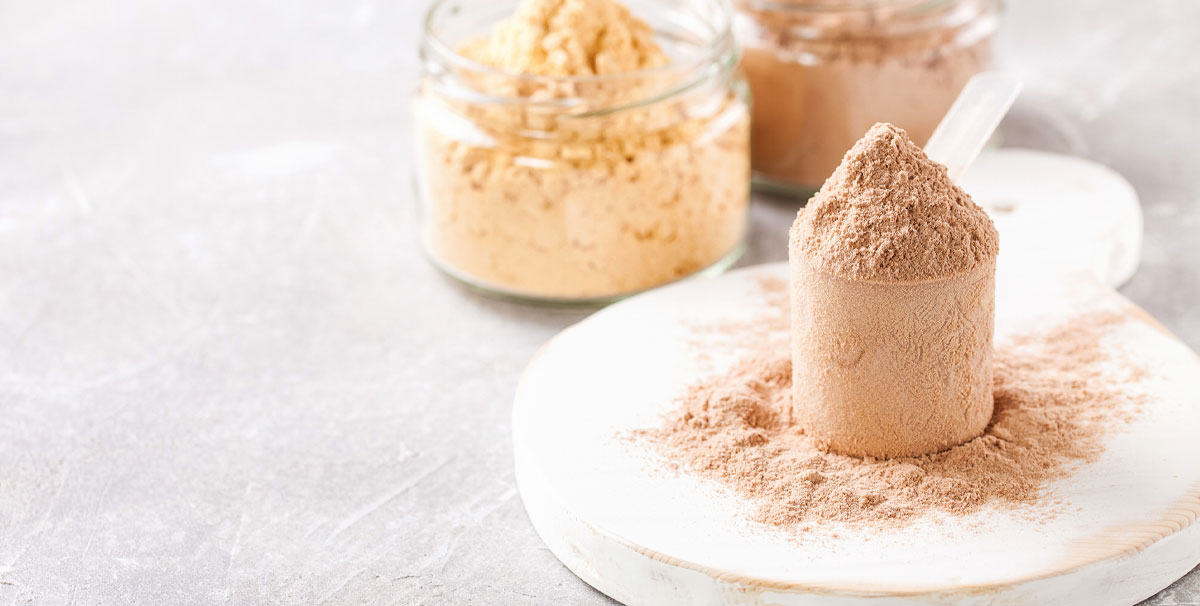
6. Casein (5-Stars)
Casein is one of the top protein supplements available for building muscle. The caveat with Casein being rated this high, is that it’s Micellar Casein that gets these accolades more so than lesser forms of casein like sodium or calcium caseinate.
Micellar casein is composed of molecules called micelles that form a bolus or a “clot” in the stomach when consumed. That makes them digest very slowly over period of several hours – supplying the body with amino acids, maintaining a positive nitrogen balance and keeping the body from breaking down muscle.
In fact, A 1997 study, published in the journal Proceedings of the National Academy of Sciences, USA (PNAS) showed the effects on amino acid levels and protein synthesis of casein, and found that when it comes to stimulating protein synthesis, casein increased that 31% (vs. 68% for whey)[1].
However, taking a micellar casein supplement caused a 31% reduction in whole protein breakdown – which makes it a very important supplement for preventing muscle breakdown. This is likely due to the slow-release nature of casein and makes it ideal for taking before long periods where you know you can’t or won’t be able to eat.
SHOP & SAVE ON CREATINE
From nutritional and amino acid perspective, Casein is a complete protein that is made up of 34% essential amino acids. This is higher than egg protein, but is behind the levels in whey protein.
Most inexpensive casein protein powders are composed partially or totally of sodium or calcium caseinate. Caseinates are isolated casein proteins that don’t deliver the same sustained release benefits of micellar casein.
Does Micellar Casein have any weaknesses? Well, it’s slow release of aminos reduces the peak anabolic response (protein synthesis). Casein also contains less leucine than whey.
7. Whey (5-Stars)
Whey protein burst onto the scene in supplement form in a big way in the early 1990s and hasn’t looked back. This complete protein contains all the essential amino acids needed for stimulating skeletal muscle protein synthesis, and also has a higher proportion of branched-chain amino acids (BCAAs).
In addition, whey protein is quickly and easily broken down into amino acids for a faster absorption rate through the intestines and into the bloodstream. The end results?
A massive amino acid infusion that reaches the muscles quickly. There’s no mystery whey protein is among the top selling sport supplements in the world and has been for 30 years.
SHOP & SAVE ON PRE-WORKOUT
Of all proteins, whey also has the highest concentration of leucine. Leucine is the primary amino acid that activates protein synthesis. As a result, taking whey after a workout can help in promoting muscle synthesis better than any other protein source.
From an essential amino acid perspective, whey is 43% EAAs – the most of any protein. It’s quite simply unmatched as a protein source for athletes.
[2] https://pubmed.ncbi.nlm.nih.gov/9405716/
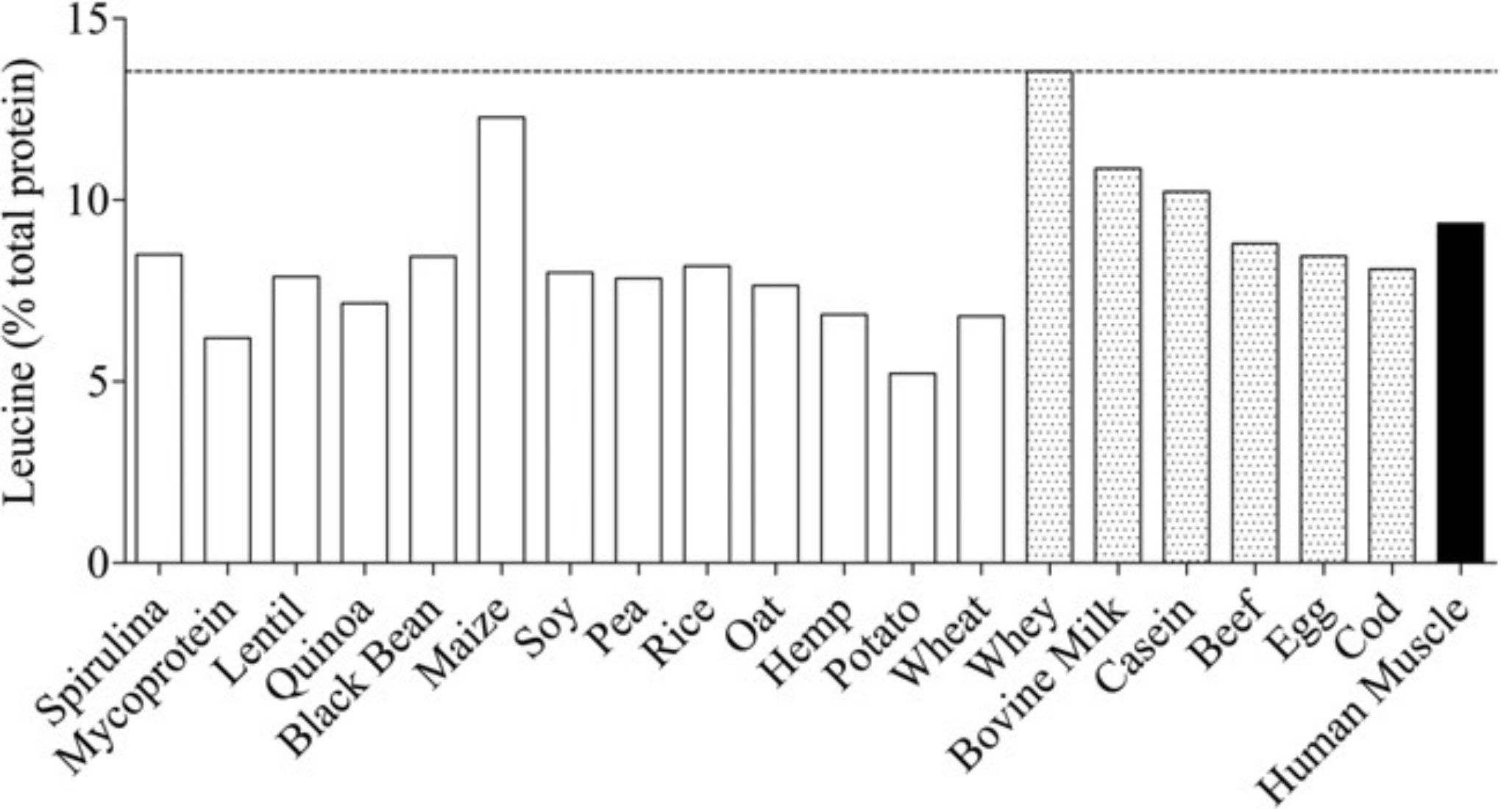
Improving Upon Whey Protein
Over the years there have been numerous ways found to improve on regular whey. One of them most common is to refine or pre-digest it into hydrolyzed form so that it gets absorbed even faster. These whey peptides cause a greater spike in insulin levels than whey protein isolate. Other protein manufacturers have added additional leucine and even HMB to further boost protein synthesis – with modest results.[1]
Whey+Creatine
The improvement over regular whey with the greatest impact in published research is the inclusion of 3g of creatine with 30g of whey protein. This combination was validated in a six-week gold standard study where subjects using these core ingredients gained 70% more lean muscle than subjects using regular whey protein.
Strength gains were also significant – and subjects increased their one-rep max bench press by 34 lbs., compared to only 14 lbs. for subjects using regular whey protein.
Creatine is a major storage form of fuel that drives muscular contractions when you’re lifting weights. But once you use up creatine stores, they have to be regenerated or further contractions can’t take place.
It’s easy to understand, then, that if you can hyper-regenerate creatine stores in your muscles, you’ll be able to rest less between sets, get more power out of each set, get more reps from each set, and thus stimulate more muscle fibers during your workout.
That leads to more growth. This is why using a creatine supplement helps you get bigger and stronger. Combine that with whey protein and you’re delivering your muscles a consistent fuel and amino acid source that will help boost exercise performance while helping with muscle growth and recovery.
Platinum Whey + Muscle Builder
Designed for athletes who are looking for more muscle, more strength and better performance, Platinum Whey + Muscle Builder delivers a full 30g of Whey Protein per scoop and combines that with 3g of pure HPLC-tested Creatine Monohydrate. It’s a brilliantly simple, clean formula that combines the two top muscle and strength building ingredients into one convenient and delicious protein shake.
And in addition to its key musclebuilding ingredient, Platinum Whey + Muscle Builder contains BCAAs (leucine, isoleucine and valine) and is designed to deliver essential amino acids and proteinogenic (protein building) amino acids that are quickly digested and absorbed by your bloodstream – aiding in muscle cell repair and growth and helping to make Platinum Whey + Muscle Builder the perfect choice for rapid post-workout amino acid delivery.
Visit our Shop to Buy the Best Body Building Supplements
Want to know how you can improve your fitness journey? Check out the rest of our blogs!
- The Complete Guide to Workout Supplements
- 19 Time Tested Workout Supplements for Men
- Protein on a Budget
- A-Z Guide on the Best Plant Based Protein
- Slow vs Fast Absorbing Protein and When to Take Each
- Post-Workout Nutrition: What to Eat after a Workout?
[3] https://www.ncbi.nlm.nih.gov/pmc/articles/PMC7069016/
In a six-week, double-blind study involving 36 test subjects who have at least three years of weight-training experience divided into three groups, subjects who have combined the core ingredients in Whey + Muscle Builder with a weight-training program gained 70% more lean muscle than subjects using regular whey protein (8.8 lbs. vs. 5.1 lbs.) and increased their bench press more than subjects using regular whey protein (34 lbs. vs. 14 lbs.).
Bonus: Grab a FREE eBook on High-Performance Training
